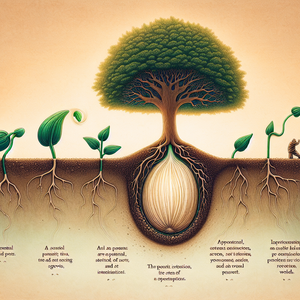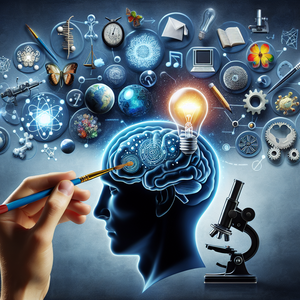Tech Meets Hollywood: The Fusion of Entertainment and Innovation

The last decade has witnessed an explosion of tech startups in Los Angeles focused on entertainment. Companies such as Oculus, Snap, and Riot Games have pioneered immersive experiences that transport users beyond traditional viewing methods. Oculus, known for its groundbreaking virtual reality headset, has opened new avenues for storytelling, allowing users to step inside their favorite films and games. This innovation is not merely a novelty; it represents a fundamental shift in narrative engagement. Snap, the parent company of Snapchat, has integrated augmented reality (AR) features that allow users to interact with content in unprecedented ways. For instance, the platform’s AR lenses enable users to overlay digital content onto the real world, creating a fusion of reality and imagination that enhances user engagement. The success of these features illustrates the demand for more interactive experiences in entertainment. Moreover, companies like Riot Games have changed the landscape of gaming through esports and interactive storytelling, attracting millions of viewers and creating a new model of entertainment that emphasizes community and engagement. A report by Deloitte indicates that 75% of consumers are interested in immersive technologies, underscoring the demand for innovative experiences. Startups that harness these technologies are poised to capture a significant share of the market.
Evolving Content Distribution
The way content is distributed has evolved dramatically due to technological advancements. Platforms like Twitch and the now-defunct Quibi have transformed how audiences consume media. Twitch, initially a platform for gamers, has expanded to include various content, allowing creators to connect directly with their audiences in real time. This direct engagement has empowered content creators and provided a new revenue model based on subscriber engagement and donations. Quibi, despite its short-lived existence, showcased the potential of mobile-first, bite-sized content, catering to a generation that demands entertainment on the go. Its innovative approach highlighted the importance of adaptability in an industry that is constantly evolving, even if it ultimately faced challenges in execution.
Enhancing Viewer Experiences
Startups are increasingly focusing on enhancing viewer experiences through technology. Cinelytic, for example, utilizes artificial intelligence to assist in film production by predicting a project’s success based on data analysis. This not only helps studios make informed decisions but also streamlines the production process, reducing financial risk. By leveraging data analytics, Cinelytic empowers filmmakers to navigate the complexities of production more effectively. Moreover, companies like Flicks are leveraging machine learning algorithms to personalize content recommendations, ensuring that viewers discover shows and movies that resonate with their preferences. This level of personalization enhances user engagement and keeps audiences coming back for more. Research shows that personalized recommendations can significantly increase viewership and customer satisfaction, further solidifying the importance of tech in entertainment.
The Future of Entertainment and Tech
As we look to the future, it is clear that the fusion of technology and entertainment will continue to evolve. The rise of 5G technology promises to enhance streaming capabilities, allowing for higher-quality content delivery and reduced latency. This will enable immersive experiences such as live VR concerts and interactive films that are currently possible but not widely accessible. Additionally, the integration of blockchain technology is set to revolutionize content ownership and distribution. Startups like Dapper Labs are experimenting with non-fungible tokens (NFTs) to give artists and creators new ways to monetize their work, paving the way for a fairer distribution of profits within the industry. This innovation could fundamentally change how intellectual property is managed, offering artists greater control over their creations.
The intersection of technology and Hollywood is a vibrant and rapidly evolving landscape. Startups in Los Angeles are not only innovating how content is created and consumed but are also redefining the viewer experience in ways that were unimaginable just a few years ago. As these companies continue to push boundaries and explore new technologies, the future of entertainment looks excitingly unpredictable. For audiences, this means more engaging, interactive, and personalized experiences that enrich the way we enjoy stories. As we stand on the brink of this new era, one thing is certain: the fusion of tech and entertainment will continue to shape our cultural narrative for years to come. With innovative startups at the helm, the possibilities for the entertainment industry are boundless, promising to keep audiences captivated in ways previously thought unattainable.
Virtual Reality Experience Designer
Oculus, Riot Games, Dreamscape Immersive
Core Responsibilities
Design and develop immersive VR environments for storytelling, gaming, and interactive experiences.
Collaborate with artists, developers, and content creators to bring narrative concepts to life in a virtual setting.
Conduct user testing to refine and enhance the overall user experience.
Required Skills
Proficiency in 3D modeling software (e.g., Unity, Unreal Engine).
Strong understanding of UX/UI principles and interactive design.
Familiarity with VR hardware and software development kits (SDKs).
Augmented Reality (AR) Content Developer
Snap, Niantic, Magic Leap
Core Responsibilities
Create engaging AR experiences for mobile platforms, enhancing user interaction with digital content.
Work closely with marketing teams to develop AR campaigns that promote films, games, or products.
Analyze user engagement metrics to inform future AR content strategies.
Required Skills
Experience with AR development tools (e.g., ARKit, ARCore).
Strong coding skills in languages such as C# or JavaScript.
Creative mindset with a focus on storytelling and user engagement.
Data Analyst for Entertainment Technologies
Cinelytic, Netflix, Hulu
Core Responsibilities
Analyze viewer data to provide insights into content performance and user preferences.
Collaborate with production teams to optimize content strategies based on data-driven recommendations.
Develop predictive models that assess the potential success of upcoming projects.
Required Skills
Proficiency in data analytics tools (e.g., Python, SQL, Tableau).
Strong analytical skills with a focus on interpreting complex data sets.
Experience in the entertainment industry or related fields is a plus.
Esports Marketing Manager
Riot Games, Blizzard Entertainment, ESL Gaming
Core Responsibilities
Develop and execute marketing strategies to promote esports events and gaming content.
Engage with the gaming community through social media, live events, and influencer partnerships.
Monitor and analyze campaign performance to enhance future marketing efforts.
Required Skills
Experience in digital marketing and brand management, particularly in gaming or entertainment.
Strong communication skills and an understanding of gamer culture and trends.
Ability to work in a fast-paced environment and manage multiple projects simultaneously.
Blockchain Developer for Digital Entertainment
Dapper Labs, Immutable, Enjin
Core Responsibilities
Design and implement blockchain solutions for content ownership, distribution, and monetization.
Collaborate with creative teams to integrate NFTs and smart contracts into digital media platforms.
Ensure security and scalability of blockchain applications to handle high volumes of transactions.
Required Skills
Proficiency in blockchain technologies (e.g., Ethereum, Hyperledger).
Strong programming skills in languages such as Solidity, JavaScript, or Go.
Familiarity with digital copyright laws and intellectual property rights.


